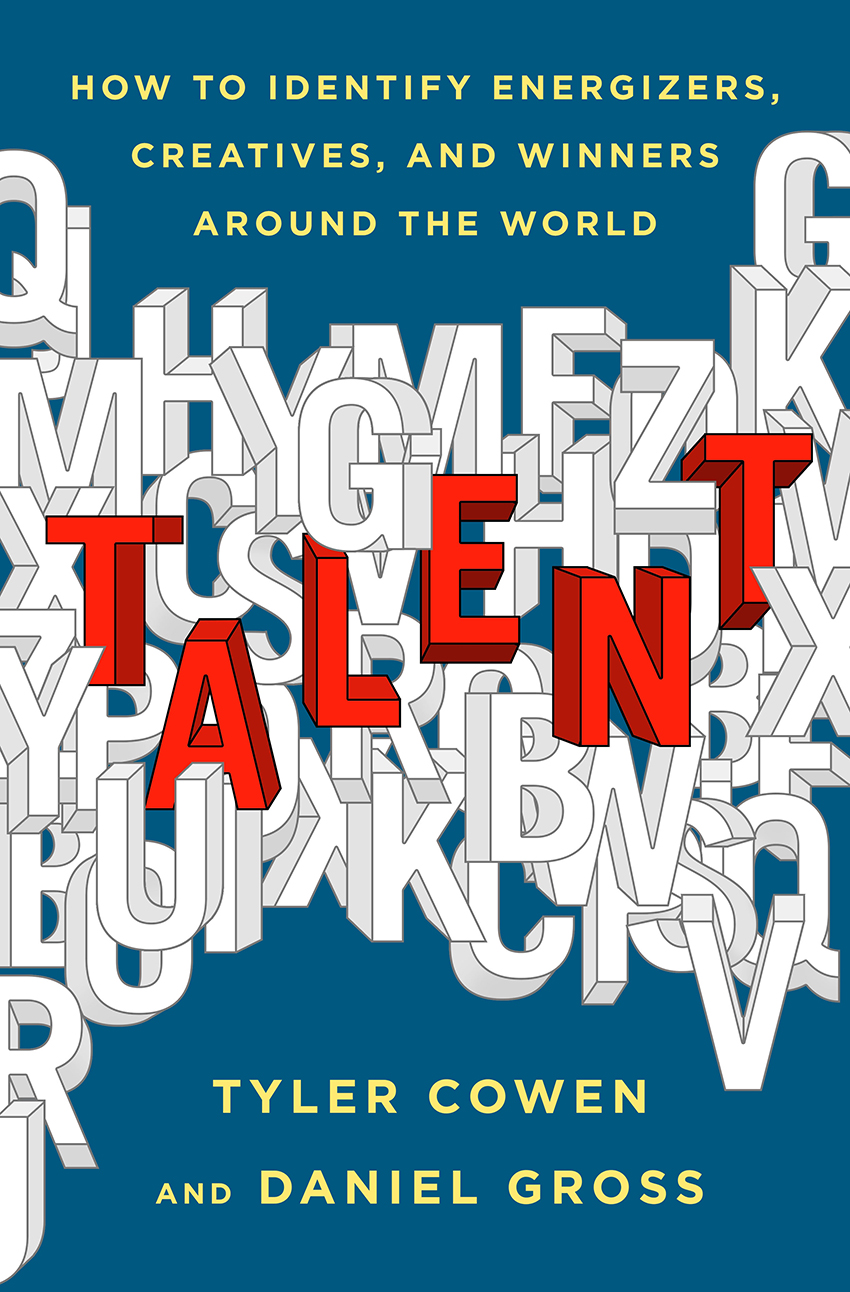By Ray Bert
Talent: How to Identify Energizers, Creatives, and Winners Around the World, by Tyler Cowen and Daniel Gross. New York City: St. Martin’s Press, 2022; 288 pages, $28.99.
As we wend through the shifting, turbulent economic landscape that has defined the past few years, a common recent focus has been companies’ searches — at times desperate — to find enough employees to keep businesses running efficiently, and sometimes running at all. This is particularly visible in a shortage of people to fill entry-level or relatively low-skilled jobs.
But the many and varied effects of the pandemic — the normalization of remote work and a renewed focus on work-life balance, among them — have also resulted in increasingly fierce competition for top-tier talent in many industries.
The best are always highly sought after, of course, but as the authors of Talent explain, even good companies aren’t always terribly efficient at identifying just who those people are. Whether through poor, outdated processes or a lack of imagination, firms and the people within them who are in charge of hiring decisions often end up finding a lot of “good enough” — or even highly competent — people while missing out on the true change-makers. Those are the people with the “creative spark” to have and drive new ideas and initiatives and who inspire others to be better.
The co-authors bring impressive — and quite different — credentials to this project, which grew out of increasingly frequent conversations after they met in 2018. Tyler Cowen, Ph.D., is an economist, professor at George Mason University, and author of 18 previous books as well as one of the authors of Marginal Revolution, one of the world’s most popular blogs covering economics. Daniel Gross, meanwhile, was at one time the youngest founder (at 18) ever accepted into prolific startup accelerator Y Combinator, founded a search engine that was acquired by Apple, and later founded and still runs Pioneer, his own accelerator dedicated to finding undiscovered talent.
In structuring Talent, the authors first elucidate their four “core perspectives” that underpin their methodologies. One of these is the importance of learning to be curious about talent, not just in work contexts but everywhere in your life — to make it a hobby, essentially. Another is to understand and embrace that there are difficult judgments that must be made in evaluating talent properly. Some people simply don’t have the necessary talent, and people who are searching for talented people need to have the stomach for making those decisions frequently and ruthlessly.
Cowen and Gross then tackle a number of different elements of talent searching, all rooted in sidestepping bureaucratic methods and processes that don’t work. They discuss how to interview people in a way that actually elicits information about who candidates really are. For example, interviewers could ask “What are the open tabs on your browser right now?” they suggest, or pose questions that require candidates to tell stories about themselves. Once interviewers get candidates talking, they can evaluate what that information tells them. The authors also discuss at length the differences between interviewing people online versus in person.

Subsequent chapters zero in on when what we might call “traditional” intelligence (like IQ scores) is overrated and when it is supremely important. This is followed by a two-part examination of where personality traits — and which personality traits — matter greatly. For example, for high-end, top-tier people, they note the importance of stamina — people who have higher than normal energy and the will to keep going. Talent also uses several chapters to discuss why people with disabilities, women, and minorities are still undervalued and how that represents an opportunity for companies to break those patterns.
Written with an infectious, conversational tone that avoids pandering and unnecessarily dense overintellectualism, Talent is also packed with specific examples and recognizable names from fields ranging from business to sports to technology to music to fashion to gaming that keep the story, and its theme and lessons, rolling along. And because, as the authors note early on, “Just about everyone is on a quest to find talent in others or to show off their own,” there should be quite literally something to learn for anyone inside its pages.



